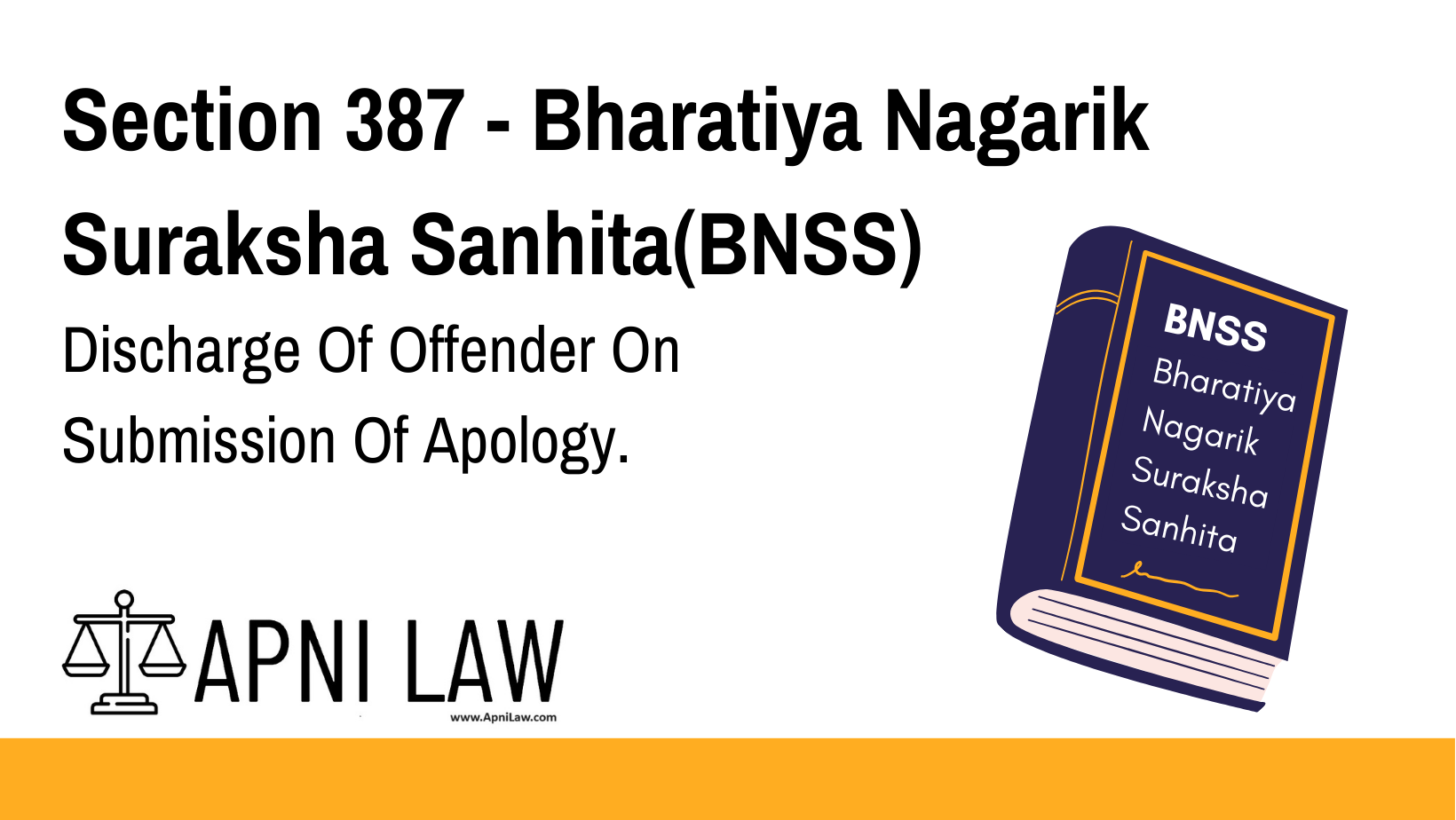Code: Section 387 BNSS
Discharge or Remission of Punishment
When any Court has under section 384 adjudged an offender to punishment, or
has under section 385 forwarded him to a Magistrate for trial, for refusing or omitting to do
anything which he was lawfully required to do or for any intentional insult or interruption,
the Court may, in its discretion, discharge the offender or remit the punishment on his
submission to the order or requisition of such Court, or on apology being made to its
satisfaction.
Explanation of Section 387 BNSS
Section 387 BNSS provides the Court with the power to discharge or reduce punishment for an offender who has been:
- Punished under Section 384 BNSS for contempt of court, false evidence, or misconduct.
- Forwarded to a Magistrate under Section 385 BNSS for trial due to a more serious offence.
Key Provisions:
- When Can the Court Show Leniency?
- If the offender apologizes to the Court’s satisfaction.
- If the offender complies with the Court’s order or requirement.
- Discretion of the Court
- The Court may choose to either:
- Completely discharge the offender, or
- Reduce or cancel the punishment.
- This is not an absolute right of the offender but a privilege granted at the Court’s discretion.
- The Court may choose to either:
- Purpose of this Provision
- Encourages compliance with court orders.
- Allows genuine apologies to be accepted rather than imposing harsh penalties.
- Helps in maintaining the dignity of the Court while allowing for reasonable leniency.
Illustration
Example 1: Courtroom Contempt
A lawyer disrupts proceedings by shouting at the judge and is fined ₹1,000 under Section 384 BNSS.
- If the lawyer apologizes sincerely, the Court may remit the fine under Section 387 BNSS.
Example 2: Failure to Comply with an Order
A witness refuses to produce documents in court and is forwarded to a Magistrate under Section 385 BNSS.
- If the witness submits the required documents and apologizes, the Magistrate may discharge the case under Section 387 BNSS.
Common Questions and Answers on Section 387 BNSS
1. Does Section 387 BNSS guarantee leniency?
No. It is entirely at the discretion of the Court. The offender must satisfy the Court that they are genuinely apologetic.
2. Can the Court revoke punishment for any offence under this section?
No. It applies only to offences punished under Section 384 BNSS or cases forwarded to a Magistrate under Section 385 BNSS.
3. What happens if the Court does not accept the apology?
The original punishment stands or the trial continues as per the previous order.
4. Can an apology be forced under this section?
No. The apology must be voluntary and sincere for the Court to consider it.
5. Can the accused appeal if their apology is rejected?
Yes. If the Court refuses to discharge or remit the punishment, the accused can appeal in a higher court.
Conclusion
Section 387 BNSS provides Courts with the power to forgive and show leniency if an offender submits to its authority or apologizes. It ensures that justice is upheld while allowing genuine mistakes to be corrected without excessive punishment.
For more legal insights, visit ApniLaw! 🚀








